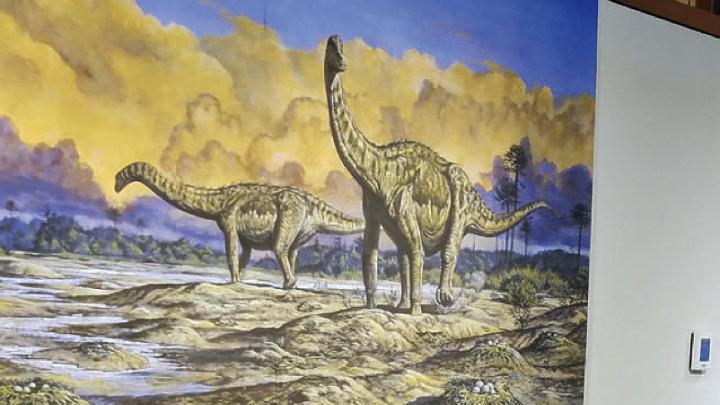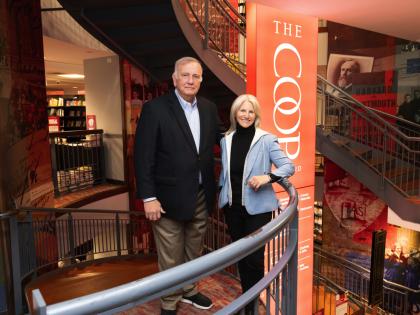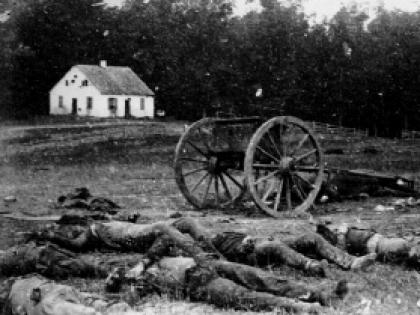Tiny Titans: Dinosaur Eggs and Babies, a new hands-on exhibit at the Springfield Science Museum, brings the prehistoric creatures closer to life. Visitors get to see a variety of fossilized dinosaur eggs and nests collected from across the globe. (That includes a sauropod’s 75-million-year-old bowling-ball-sized egg from Argentina, a cluster of ornithopod eggs laid from China, and, also from China, 18-inch eggs—the longest ever found—from a giant species of oviraptor. These objects offer new perspectives on how dinosaurs reproduced, evolved, and behaved. Lifelike embryos and hatchlings on display highlight nesting and birthing processes, while giant colorful posters contextualize dinosaur habitats. The exhibit also explains how in 1993 American fossil-preparer Charlie Magovern was working on a block of eggs unearthed in China’s Henan Province, when he discovered a nearly complete, fully articulated skeleton of an embryo encased in the stone surrounding the egg—the first of its kind. The embryo was officially identified in 2017 as a new oviraptor species and named Beibeilong sinensis (“baby dragon from China”). This family-friendly exhibit also offers chances to touch replicas of bones and nests, dig for fossils, and learn more about current research into the lives and habits of these ever-fascinating extinct animals. (May 25-September 1)
Dinosaur Babies
A new exhibit featuring fossilized dinosaur eggs and nests from around the world.

Photograph by sILvER PLUME EXHIBITIONS
You might also like
Harvard Students form Pro-Palestine Encampment
Protesters set up camp in Harvard Yard.
Harvard Coop’s Changing of the Guard
New leadership for a staple Square retailer
Artificial Intelligence in the Academy
Harvard symposium assesses the new technology.
Most popular
More to explore
Harvard Cardinal Robert W. McElroy on the Changing Catholic Church
Cardinal Robert W. McElroy on how the Catholic Church has moved towards inclusivity.
AI as Cancer Oracle?
How is artificial intelligence (AI) being used for cancer detection and prevention?
The Harvard Graduate and Early Vegetarian Benjamin Smith Lyman
Brief life of the vegetarian trailblazer, 1835-1920







